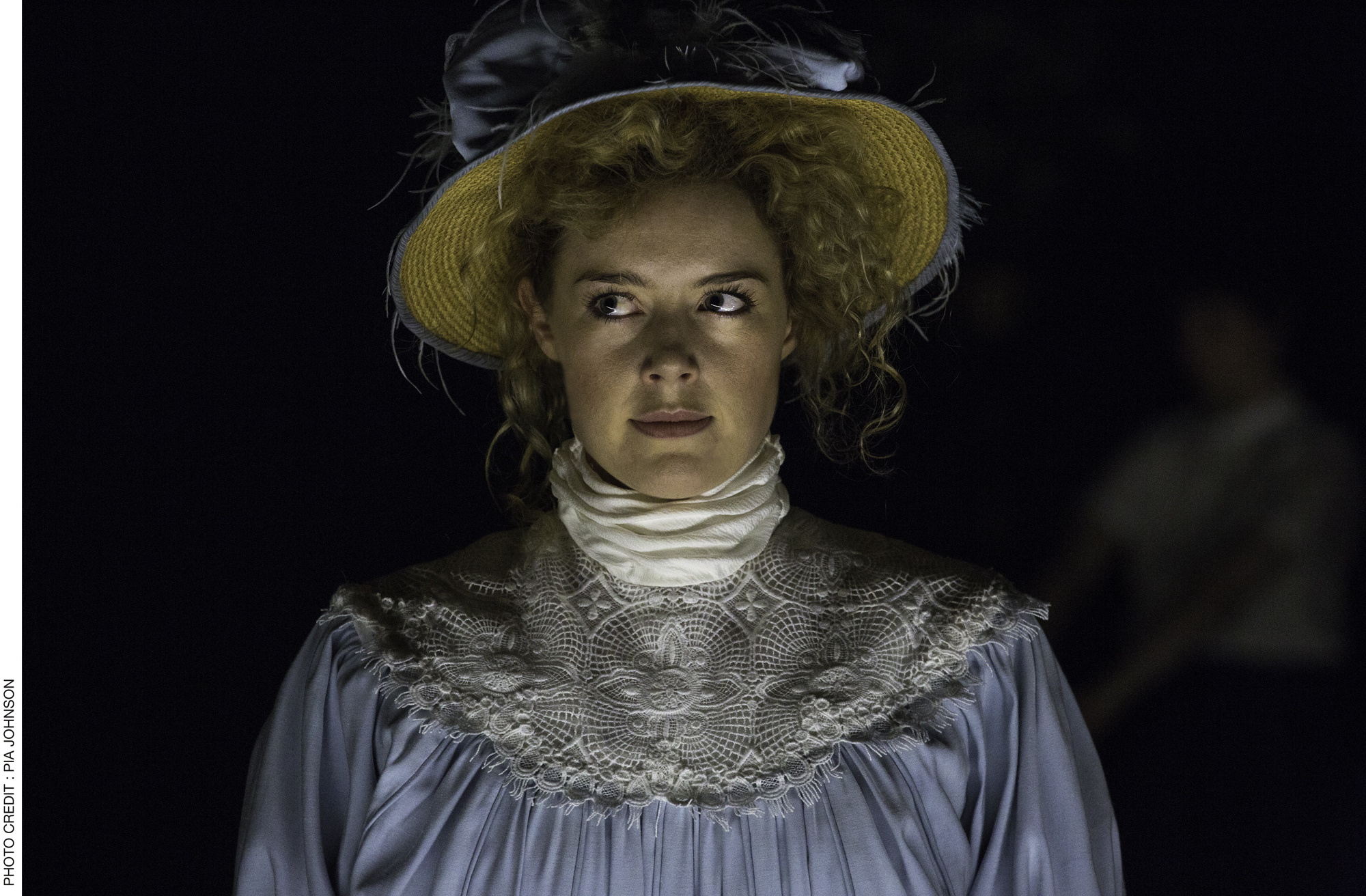Tom Wright is the star in this Black Swan State Theatre Company (BSSTC) and Malthouse Theatre co-production. Currently enjoying its WA premiere in the State Theatre Centre, the playwright’s adaptation of Picnic at Hanging Rock tells of the missing persons case resulting from an excursion gone wrong.
Under the care of two governesses, students of private girls’ school Appleyard College venture into the fierce outback for a Valentine’s Day picnic at Hanging Rock. The heat of an Australian summer casts a dizzying spell and despite being warned off it, the beloved Miranda, the cruel Marion and the beautiful Irma climb the volcanic monolith. They are trailed by the charmless Edith, who eventually turns back in the grip of hysteria.
One of the governesses and the three girls disappear that afternoon. Only one is ever seen again.
Rather unsurprisingly, the creative team decided not to literally represent the titular location on stage, so it is the playwright whose gorgeous words deftly paint a vivid image of the Aussie landscape in the mind’s eye that is essential to the suspension of disbelief that follows. Wright is the first to adapt Joan Lindsay’s classic 60s novel to the stage, and weaves an enchanting web from the very first, starting with the stunning monologues written for the opening scene, where the five actresses directly address the audience to tell the events as they occurred on St. Valentine’s Day in 1900.
 Having the actresses speak in fleeting half sentences and perfectly capturing Lindsay’s fixation with the the malleability of time, he spins the production off into a dizzying universe. His writing is by far the strongest part element, and not since Emily Ratajkowski’s meteoric rise in 2013 have I been so smitten.
Having the actresses speak in fleeting half sentences and perfectly capturing Lindsay’s fixation with the the malleability of time, he spins the production off into a dizzying universe. His writing is by far the strongest part element, and not since Emily Ratajkowski’s meteoric rise in 2013 have I been so smitten.
The journey to the Rock is further materialized by the joint efforts of composer Ash Gibson Grieg and sound designer J. David Franzke. Their eerie soundscape, led by brooding percussion, was key in curating the uncomfortable atmosphere.
Though Lindsay framed her Victorian era mystery as a true story, it is a work of fiction. One that has been adopted as faux Australian history, a myth luring visitors to the site in Victoria to this day.
Malthouse Theatre’s Artistic Director – and a former Associate Director at BSSTC – Matthew Lutton assumes the director’s chair for the first professional adaptation of the work since Peter Weir’s haunting, iconic adaptation for the screen in 1975.
An all female production, Harriet Gordon-Anderson, Arielle Gray, Amber McMahon, Elizabeth Nabben and Nikki Shiels are superbe. Dressed as modern schoolgirls in preference to the finery of Old-World attire, they don hats straight out of a Blackman painting or off the head of a private schoolgirl to embody children between the ages of thirteen and seventeen. Through the use of voice alone, they become a host of other characters by slipping seamlessly from refined French accents to deep, masculine utterances and more. Nabben especially pops during her turns as the compassionless headmistress Mme. Appleyard, a prim and proper English Lady who has ventured to this side of the world to culture the young women of Australia, and Gray’s efforts as Sara – an orphan in the care of the college – adds effective comic relief.
Lutton’s interpretation of the source material sees the play become more a horror story than a beguiling mystery. Doing so adds some much needed theatricality, and as a scary ghost tale paced by blackout after blackout, it successfully produced shocking moments followed by nervous chatter in the breathless audience.
Fresh off a Melbourne stage, the production opened at the Malthouse Theatre in March before venturing here. At 90 minutes (no interval), the ambiguous ending to this thriller will have you tearing at your hair. The bodies are never found, not even a trace, meaning the death of the three girls and their governess cannot be attributed to accident, suicide or murder. One thing’s clear: it’s not safe at the Rock.
Words by Samuel J. Cox
Picnic at Hanging Rock runs at the Heath Ledger Theatre until 17 April. Tickets available here.

